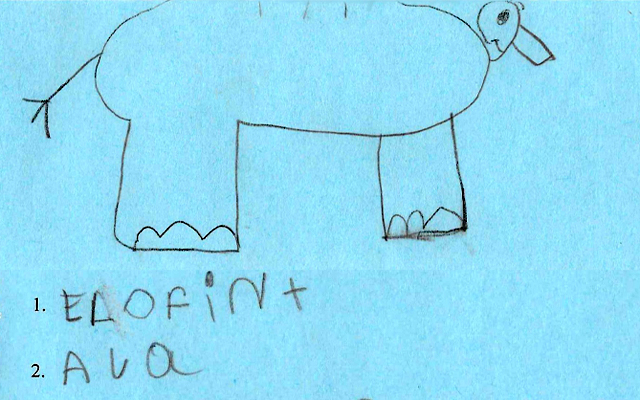| Plan for the Future
|
|
| Thursday, April 11, 2024 | |
The invitation said, “You and a guest are invited to an informative seminar that will change how you view and plan for the future!” If that subject line turns you toward retirement savings, annuities, and IRAs, think again. This scintillating seminar is offered at a local funeral home as a complimentary lunch event. You'll forgive the morbid punster in me who came up with a few alternative titles to their lunch-and-learn offer:
Bad puns aside, these helpful folks want me to “understand my options” and do some “advance planning.” And frankly, they make a great point. Pre-paid funerals take a lot of the hassle out of end-of-life scenarios. Grief is no friend to sound thinking, and tears seldom clarify the complex financial questions death brings. Yet there's something far more critical about death than casket choices. It's the spiritual planning you make (or fail to make) before you pass from this life. The Bible tells us in Hebrews 9:27, "It is appointed unto man once to die—and after this the judgment." The question is, have you planned for that? My funeral home invitation advises you should “understand your options.” The Bible assures us that there are only two concerning eternity: heaven or hell. Revelation 20:15 starkly warns, “Whoever’s name was not found written in the Lamb’s book of life was cast into the lake of fire.” Is your name in that book? Have you asked Jesus to forgive you of your wrongdoing (sins) and take charge of your life? At the bottom of my lunch and learn invite is a notice in fine print: "If you have already pre-arranged your services, be assured your information is securely on file." The same is true spiritually! If you have asked Jesus to be your Savior, you are promised in 1 Peter 1:4 that you have “an inheritance which is imperishable, undefiled, and will not fade away, reserved in heaven for you.” Is that rock-solid assurance "on file" for you? It can be! If you'd like to talk further, email me at jon.gauger@moody.edu.
|
|
| What Refuge?
|
|
| Thursday, April 04, 2024 | |
In a stairwell not far from my office is a sign in red letters: Area of Refuge. This is where you’re supposed to go for safety when things turn dangerous. That image came to mind the other day when I read Psalm 2. Verse 12 says of God, “Blessed are all who take refuge in Him.” The thing that struck me is the reality that when faced with a storm—financial, personal, marital—any storm, we have a choice in what we designate as our refuge. I'd not given it much thought, but every storm brings a choice: Where ya gonna go for refuge? Oddly, some of us turn to the refuge of denial: “This is not really happening to me.” Others turn to cynicism and despair: “If I keep reminding myself of how bad things are, things are bound to turn around—or at least look better!” Everybody turns to a refuge of some kind:
But God promises personal blessings to anyone who finds refuge in Him. To take refuge in God is to turn to Him and find protection in Him. It means we turn to Him before—and in place of—anyone or anything else. And what do we find when we take refuge in God? Peace, safety, and walls of protection from a dangerous world. Isn’t that better than going “your way”—whatever that way might be? Someone wiser than me observed everybody is either in the middle of a storm, heading into a storm, or just coming out of one. What—or whom—is your refuge? Remember—it’s a choice. Every storm. Every time. And that’s something I need to hang on to!
<a href="https://www.freepik.com/free-photo/employee-black-umbrella_955192.htm#fromView=search&page=1&position=48&uuid=f35744fa-8017-452c-bce2-a4b8fa6d236c">Image by d3images on Freepik</a>
|
|
| Elophint in the Room
|
|
| Thursday, March 28, 2024 | |
Sunday morning. My wife and I have guests sitting with us at church: four-year-old Emma and seven-year-old Ava. Both are busy drawing. With a few magical strokes of her pencil, Ava transforms a blue prayer card into a canvas featuring a decidedly happy elephant. On the reverse side of the card, Ava prints her name and identifies the subject of her sketch: “Elofint.” How can you not smile? Young children are notorious for spelling words phonetically or looking at life literally. They also take extraordinary Bible promises at face value, without the slightest doubt. Probing questions here and there—yes—but cynicism or skepticism? Not kids. Surely, that's one reason Jesus said we must receive the kingdom of heaven "like a little child." Which takes me to the—ur—Elophint in the room. Why do we struggle so much to take the Bible at face value? Sure, books like Daniel and Revelation are steeped in metaphor and allegory. But the vast majority of the Bible is plain English, and we are asked to believe it literally, like children. Here's just a straightforward example. Colossians 3:13 commands us to “forgive as the Lord forgave you." But do we? Most of us are willing to follow that verse—to a point. Only when cornered, do we admit, "Well, that was true of Jesus, but there are some things in life you really can’t forgive?" Essentially, we’ve shaved off just enough of the edge on that Bible truth to make ourselves comfortable. But who gave us that permission? Surely, there are deep things in Scripture beyond our understanding. Still, we dare not modify, minimize, or ignore the biblical call to trust—and obey.
|
|
| What Hapened at the Kibbutz
|
|
| Thursday, March 21, 2024 | |
As we step into the blackness of the torched home, my feet crunch over tiny bits of brokenness: broken furniture, broken roof tiles, broken glass. Wires and duct work dangle from the ceiling, while the melted blades of a ceiling fan droop like a sad version of Bugs Bunny. We are in Kibbutz Be'eri, one of twenty or so little communities attacked by the 3,000 Hamas terrorists who besieged Israel on October 7. Omri Kedem was here when the gunmen stormed in that Saturday morning. Hustling into their safe room, the family heard repeated shouts and banging on the door. Unable to force the family out, the Hamas attackers set fire to the house. Fortunately, their safe room helped them survive. Omri takes us into what used to be his living room. He gestures to the two homes that border his backyard. In the place on the right lived a mother, father, and their four children. When Hamas came, they set the home on fire. Eventually, the family jumped out the window. Hiding in the brush, the parents laid their children on the ground, stacking them up on each other—youngest to oldest. The mother and father then lay on top of this pile. Ultimately, Hamas returned and shot the mother, the father, and the two oldest children. Only the two youngest survived. Omri Kedem leads us on a tour of the kibbutz. It has a small-town resort feel—dwellings with tiled roofs and quaint gardens. Except now, in many cases, the roof tiles have slid down to the ground, the timbers beneath them having collapsed in the fires set by Hamas. Nearly every home has a vinyl banner posted on the wall facing the street. It features the name and photo of the person murdered inside. House after house. Name after name. Face after face. It is—literally—too much to take in. I ask you. Where is the box of tissues big enough to stem the fountain of tears these families have cried? Where is the dictionary capable of describing the evil done here? We return to our hotel—where the ceiling fan is not melted, and nothing is broken. Yet I cannot sleep for all I have seen. And in that sleeplessness, I taste a tiny morsel of the agony of Kibbutz Be'eri.
|
|
| Naama's Story
|
|
| Thursday, March 14, 2024 | |
We are seated in comfortable chairs in a comfortable conference room. But I have rarely been less comfortable. Seated next to me at Jerusalem's Ministry of Foreign Affairs is Dr. Ayelet Levi-Shachar, a woman we have come to interview. She is the mother of a vivacious 19-year-old daughter (a triathlete, no less) named Naama. On October 6, Naama traveled from home to a Kibbutz in southern Israel, where she spent the night. Early Saturday morning that kibbutz was attacked by Hamas. She was hit in the leg with shrapnel. When Naama resisted capture, she was dragged by her hair, thrown into the back of a pickup truck, and driven into Gaza—still wearing pajamas—where she presumably remains captive. In measured tones, Ayelet shares what it's like to go to bed each night not knowing where her daughter is or how she is faring. She tells us of her other three children who still need her to do ordinary things like make school lunches. She reminds us that she still has a medical practice with patients who need her attention. All this, while flicking through photos of Naama on her phone, which she shares with me. The longer Ayelet talks, the more painful her reality becomes. How am I supposed to hold a microphone up to her face, lock eyes with her, and not cry? No matter how gently I phrase my questions, merely asking feels like I'm jabbing a knife into her already bleeding soul. Ayelet's eyes speak the worst of her agony. And in the end, there is no way to hold back emotion—for her, for me, for every person in the room. Not many will have the opportunity to sit down in person with the families of Israeli hostages. But that doesn’t mean believers can’t make a difference. You can! Here's how: Go to bringthemhomenow.net. Look at the faces you see—like Naama's (there are more than 130)—and pray for them by name. Pray for their safety and release, their families, their salvation, and an end to the war. I dare you to get uncomfortable. Enough that you’re fired up to pray.
|
|
| Records per page First Prev 1 2 3 4 5 6 7 8 9 10 of 129 Next Last | |
 Jon Gauger Jon Gauger |
|||||||||||||||
| Thursday Thought | |||||||||||||||
|
|
|||||||||||||||
Recent Posts
|
.jpg)
.jpg)


